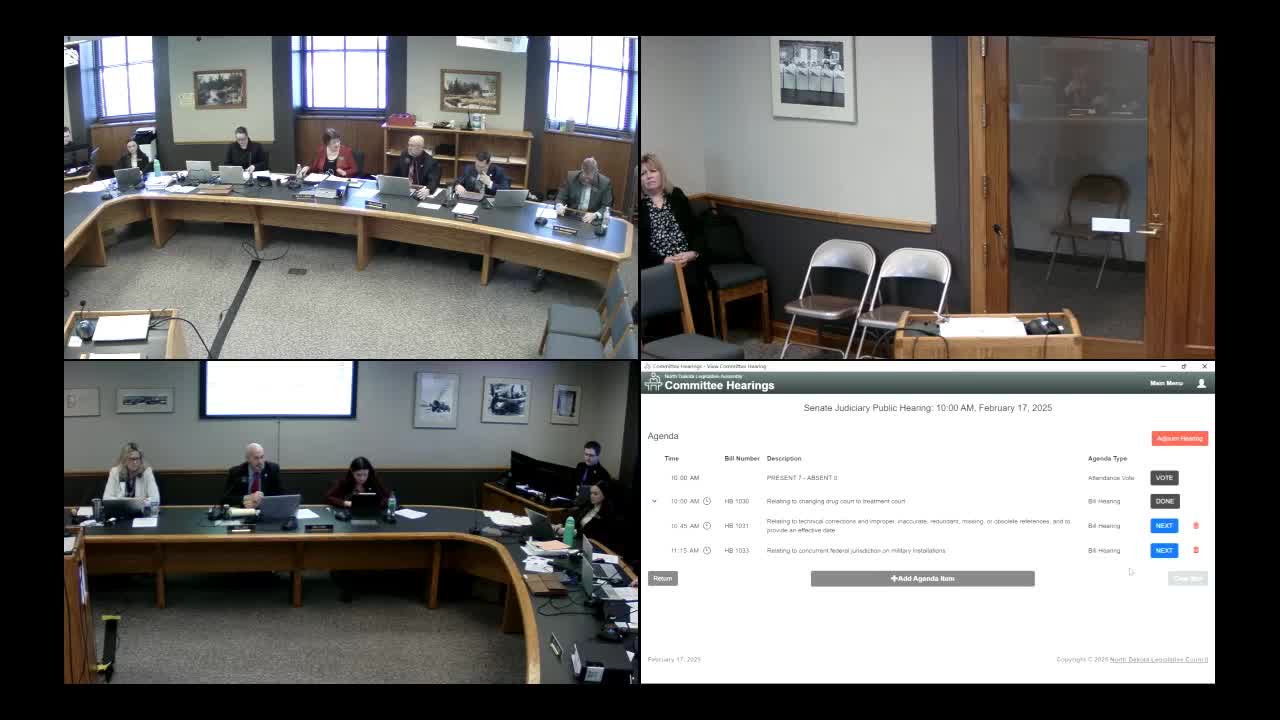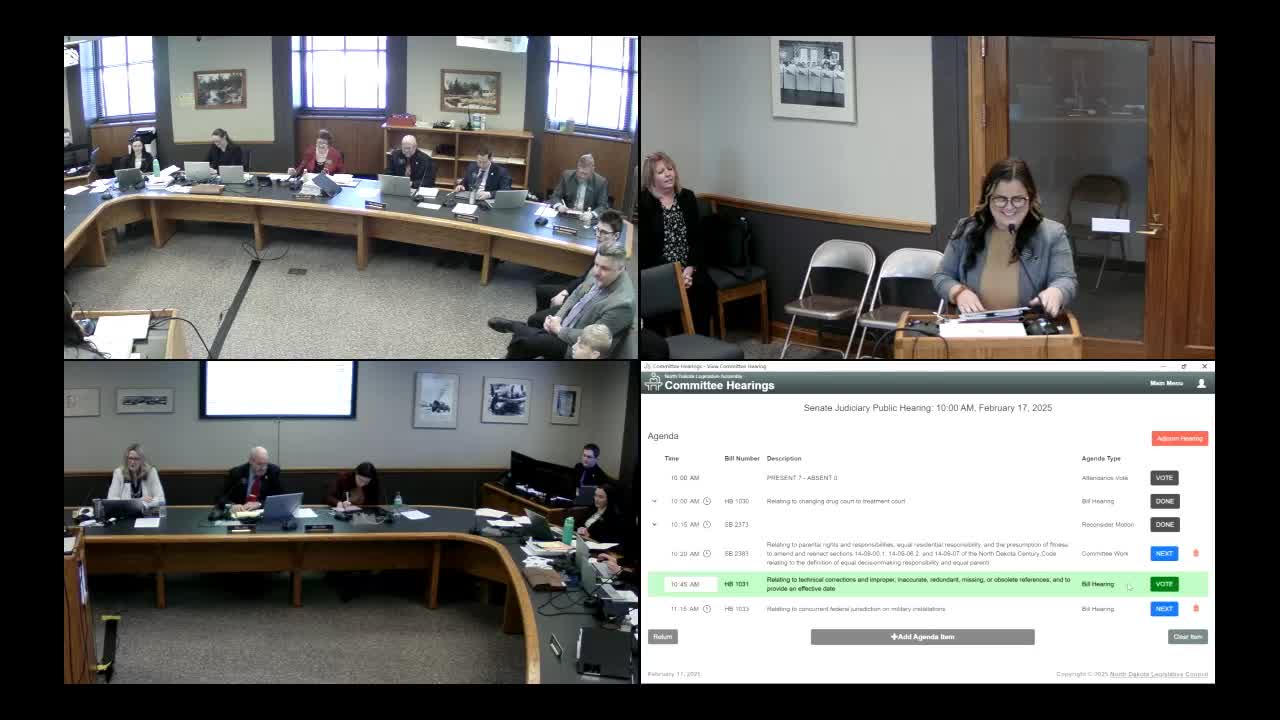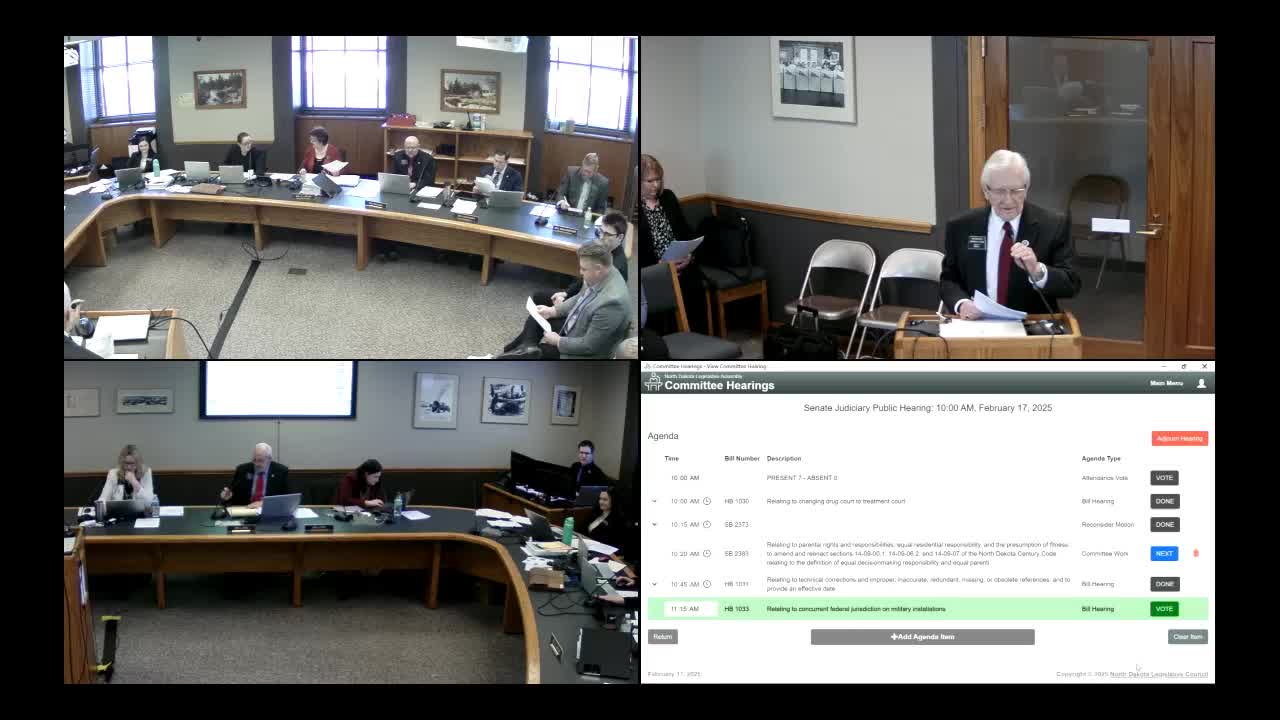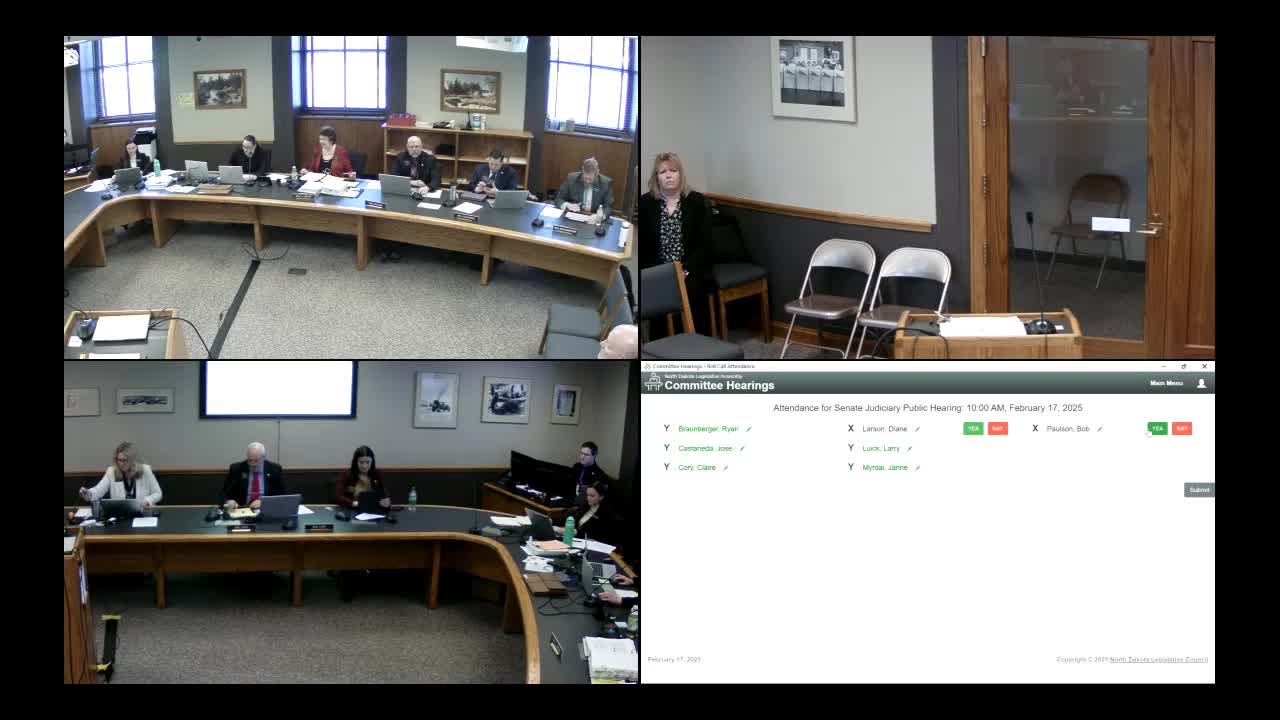Article not found
This article is no longer available. But don't worry—we've gathered other articles that discuss the same topic.

Judiciary Committee clears multiple bills: bingo-hall amendment, shared-parenting amendment and others

Judiciary Committee advances technical corrections bill that cleans up Century Code cross-references

Committee backs bill to permit concurrent juvenile jurisdiction negotiations with military installations

